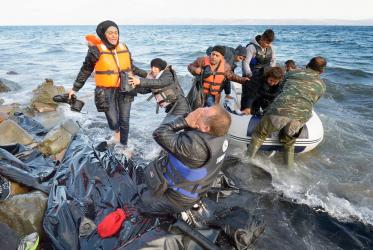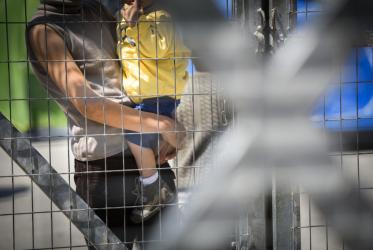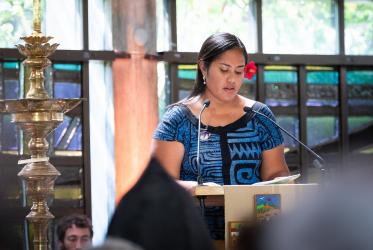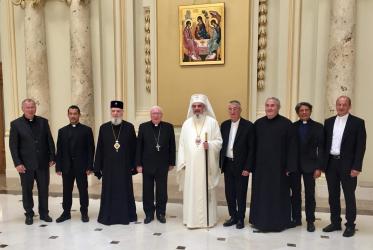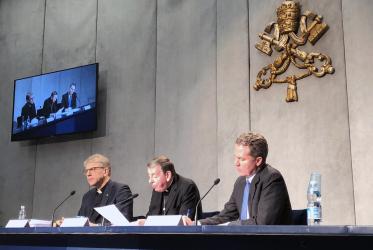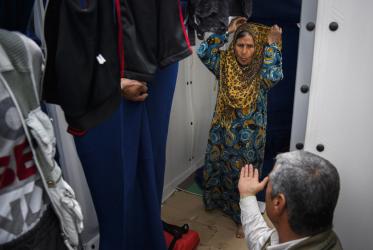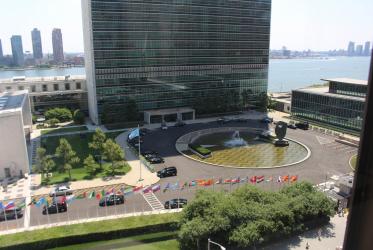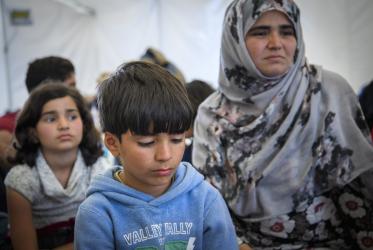Displaying 61 - 80 of 158
20 September 2018
Catholic official: we must walk and pray together with vulnerable people
19 September 2018
Catholics, WCC map future together after papal visit to Geneva
05 September 2018
Young people play key role during papal visit
22 June 2018
Pope Francis at the World Council of Churches
31 May 2018
#FaithOverFear: WCC helps support openness towards refugees
08 February 2018
Not just numbers, displaced people need to share their stories
01 February 2018
Religious organizations speak up on refugee crisis at UN event
29 January 2018
WCC to co-host public event on migration and displacement at UN
17 January 2018
